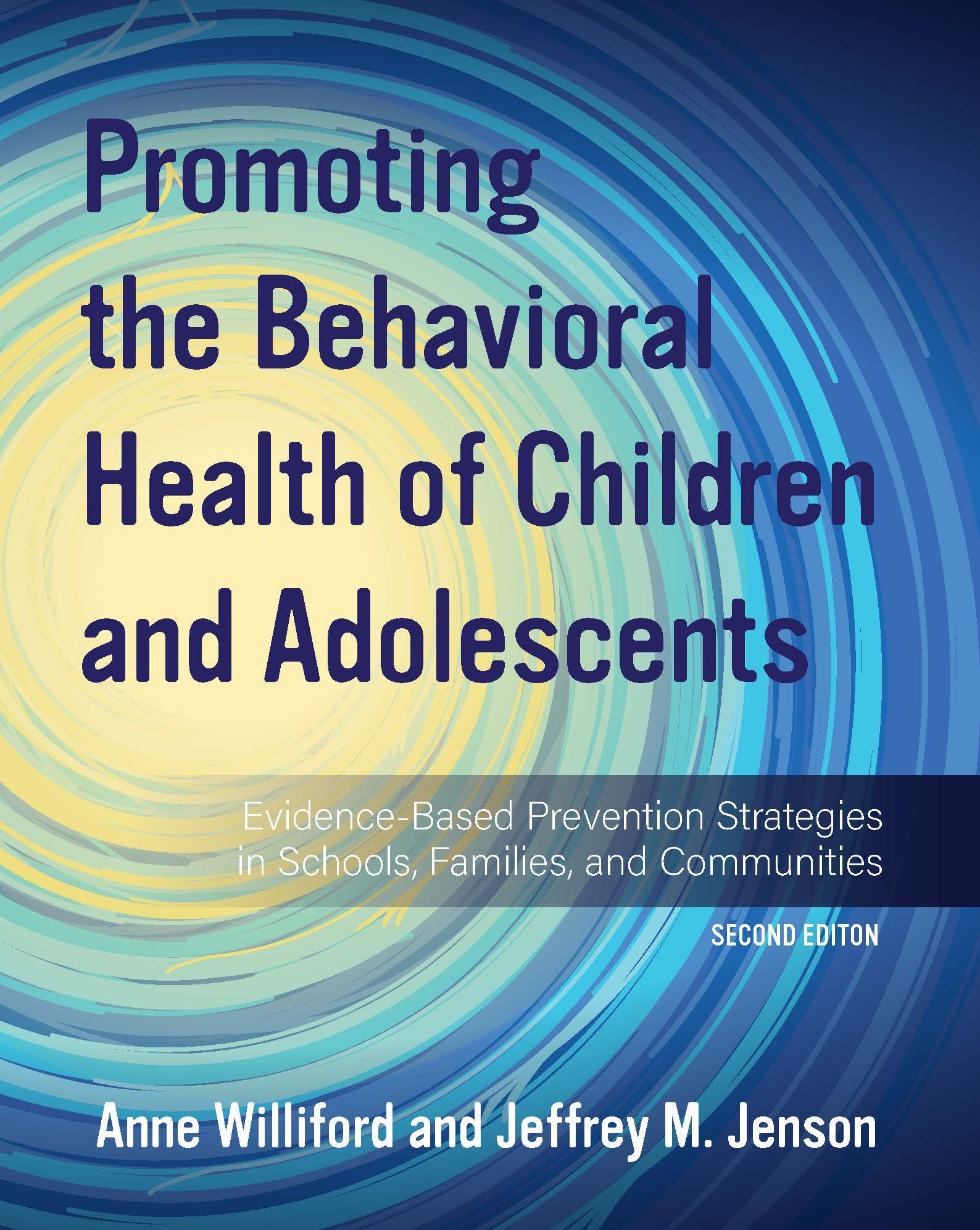Promoting Youth Behavioral Health
Book co-authored by Prof. Emeritus Jeffrey Jenson explores prevention strategies for youth behavioral health challenges

“At no time in our country’s history have young people been confronted simultaneously with so many positive and negative influences and opportunities,” says University of Denver Graduate School of Social Work (GSSW) alumna Anne Williford, PhD ’09, an associate professor and director of the PhD program at the Colorado State University School of Social Work. She notes that the COVID-19 pandemic had a particularly adverse effect on the behavioral health of young people by disrupting school, family, interpersonal and social norms.
A recent book by Williford and GSSW Winn Endowed Professor Emeritus Jeffrey Jenson responds to calls from practitioners, policymakers and the public to increase the use of effective prevention approaches for child and adolescent behavioral health challenges like those exacerbated by the pandemic. Rooted in prevention science and a public health framework, Promoting the Behavioral Health of Children and Adolescents: Evidence-Based Prevention Strategies in Schools, Families, and Communities (Cognella, 2024) reviews contemporary evidence of what works to promote behavioral health and prevent challenges such as substance use, violence, school dropout and delinquency among young people.
In the book, Williford and Jenson discuss how prevention has evolved in the United States since the 1960s and review evidence-based strategies that schools, families and communities can use to prevent behavioral health challenges and support the behavioral health and well-being of youth. The text provides practitioners and students in social work, and related disciplines, with resources to apply prevention principles and incorporate prevention programming in their work with youth.
Jenson notes, “The book offers specific recommendations for advancing prevention practice, policy, education and research. One of our main goals in writing the book was to expand the reach of prevention in social work. We know a great deal about the efficacy of prevention approaches, but effective programs and policies are not widely implemented by social workers.”





